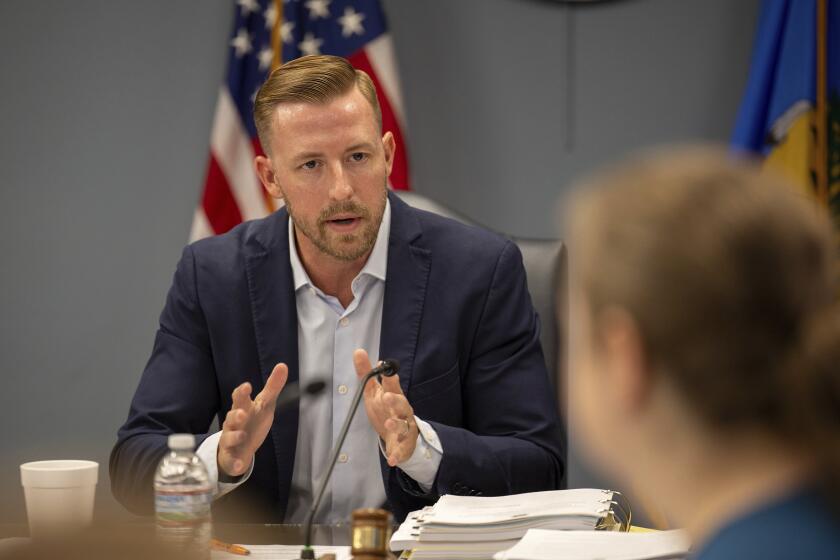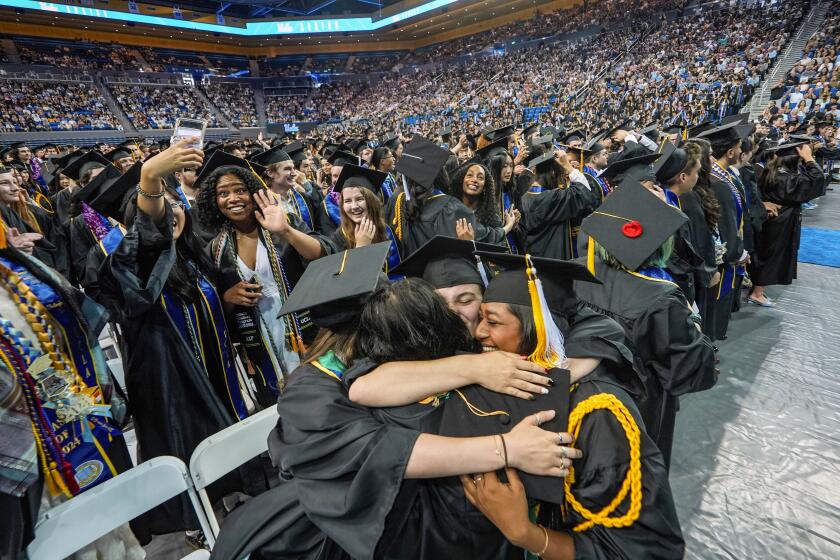Eli Broad Gives $100 Million for School Reform
Financial services tycoon Eli Broad has donated $100 million in a nationwide campaign to identify and cultivate innovations in urban school management.
Speaking for the first time about a foundation he incorporated at the beginning of this year, Broad told The Times last week that he intends to launch risk-taking ventures to improve principal training, labor relations and school board practices.
He said he has been consulting educational innovators nationwide on how to stimulate reform.
“We think the answer gets down to leadership at the school level, the district level, with competent governance,” he said.
Broad, chairman and CEO of SunAmerica, is worth $4 billion, according to Forbes magazine, which ranked him in a tie for 48th place on its list of the richest Americans. He has formed an art foundation and is part of a group attempting to bring a professional football team to Los Angeles.
At present, the new entity, called Broad Foundation, has no permanent staff, no facility and no specific program. It operates from SunAmerica’s Century City headquarters.
“It’s all in its formative stages. We want to do this intelligently,” said Broad, who indicated that his $100-million gift could be just a starting point.
Two consultants, one with a background in education and the other in finance, have been retained to define the foundation’s mission and identify projects it will fund.
One of the consultants, Dan Katzer, a graduate of the Harvard Graduate School of Business Administration, said he views his work as searching out venture capital opportunities in educational innovation.
Co-coordinator Sibyll Carnochan, who has a doctoral degree in education from UCLA, said she will be vetting ideas within and outside the educational community to confirm that they are “catalysts for change.”
Broad said he is expecting to announce a program near the end of the year. He outlined several areas being explored.
Among them, he wants to create a graduate management program for principals and administrators, possibly at UCLA.
“It would give them training in management, systems, labor relations, finance, in addition to the education,” he said. “In other words, how do we take bright teachers and give them the training to be first-rate managers or principals?”
Such a program could be either in the school of education or business, Broad said.
The foundation will also consider funding principal academies run by districts or other models such as on-the-job training combined with courses at a university institute.
On labor relations, Broad has been conferring with Adam Urbanski, president of the Rochester teachers union and director of a coalition of progressive labor leaders called the Teacher Union Reform Network.
Urbanski said he would make a proposal to the Broad Foundation in November for a demonstration project, possibly in Los Angeles, to improve low-performing schools by increasing teacher skills and promoting collaboration.
“It will involve strategies for ending the adversarial relationships that plague labor management relations,” Urbanski said.
Other ideas include establishing prizes such as the Malcolm Baldridge National Quality Awards for high performance, and starting a national visibility campaign to encourage the spread of successful innovations.
These could include new ways to improve school board competence. Broad wants to raise the public visibility of school boards, perhaps by adopting a system of mayoral appointment rather than elections.
Broad became active in Los Angeles school politics this year, contributing $250,000 to Mayor Richard Riordan’s Coalition for Kids, which backed a successful slate of four reform candidates for the Los Angeles Board of Education.
He characterizes public elementary and high school education as “an aging, tired monopoly” that needs competition, which could come from charter schools or private schools. However, he opposes the use of public funds for school vouchers.
“If we want to be a competitive society, if we want to save our middle class, K-12 is the nation’s salvation,” he said.
More to Read
Inside the business of entertainment
The Wide Shot brings you news, analysis and insights on everything from streaming wars to production — and what it all means for the future.
You may occasionally receive promotional content from the Los Angeles Times.











